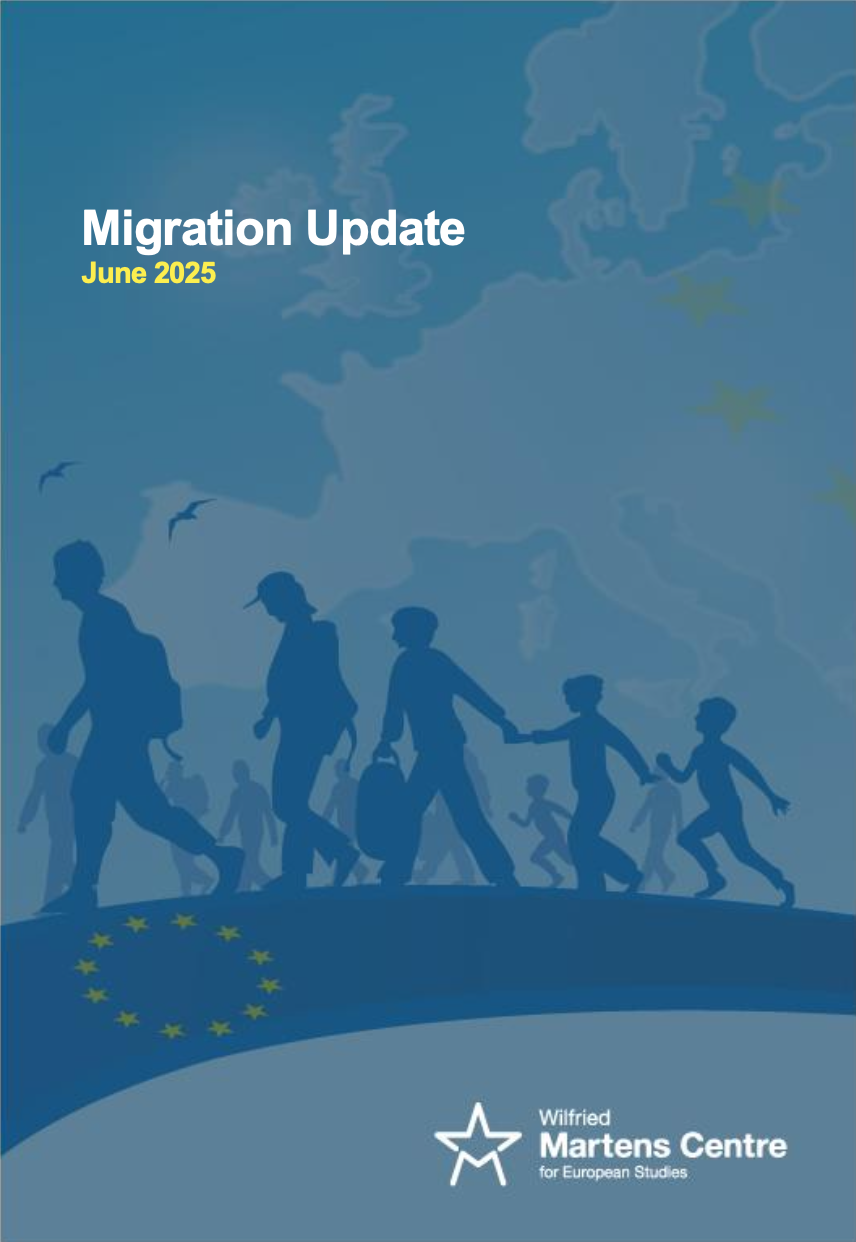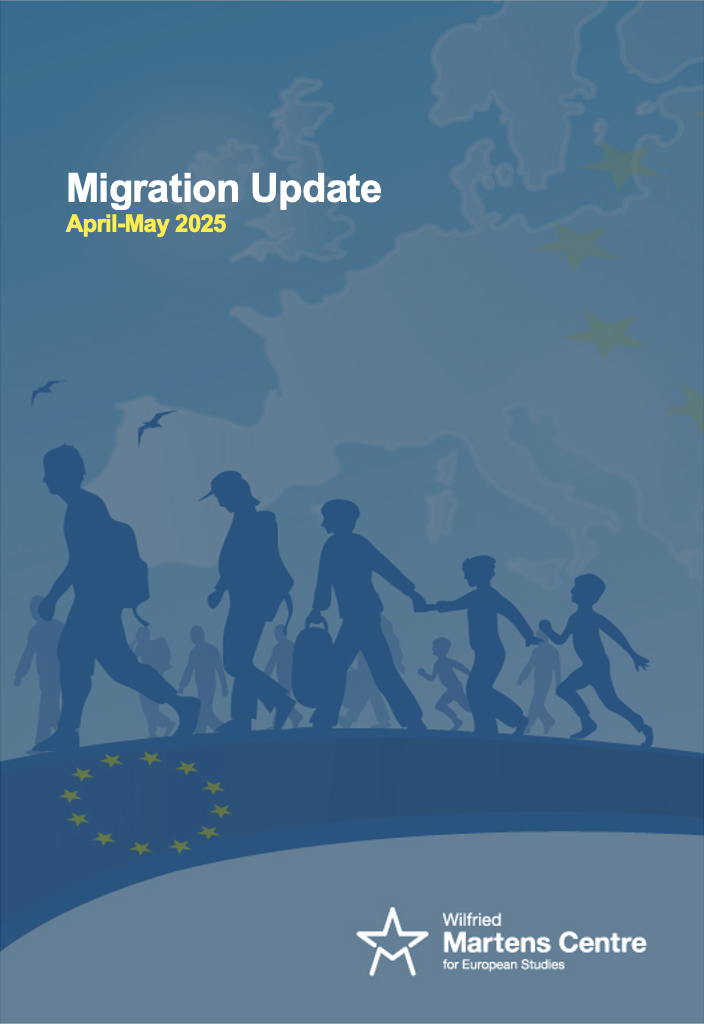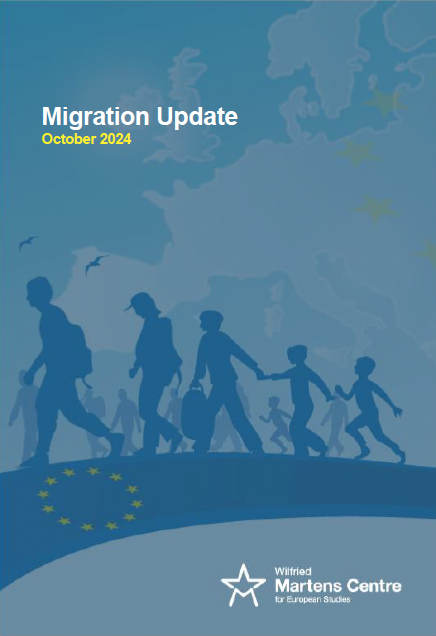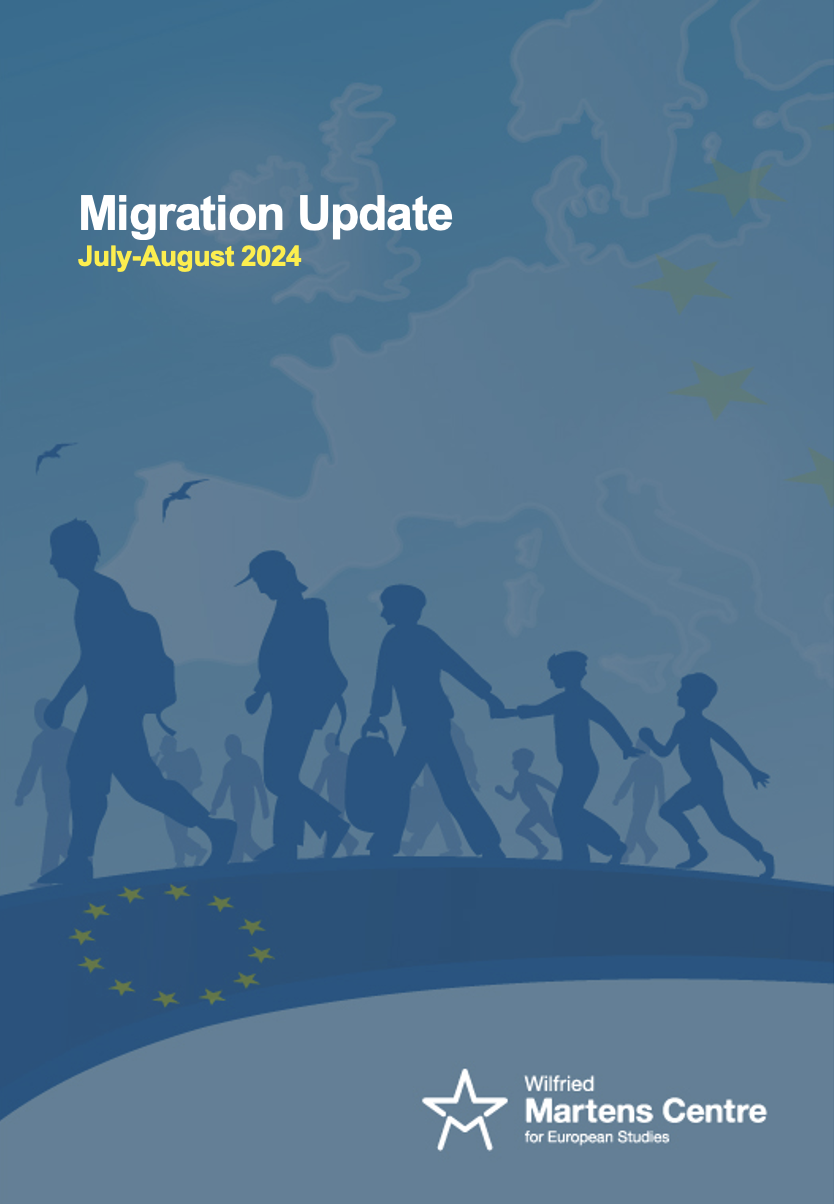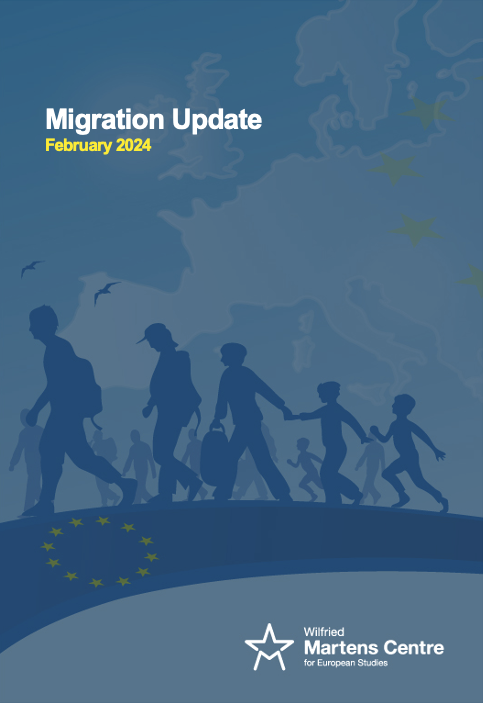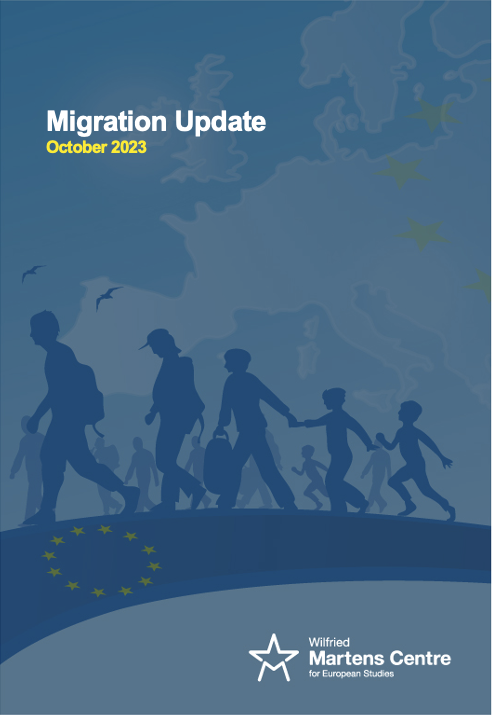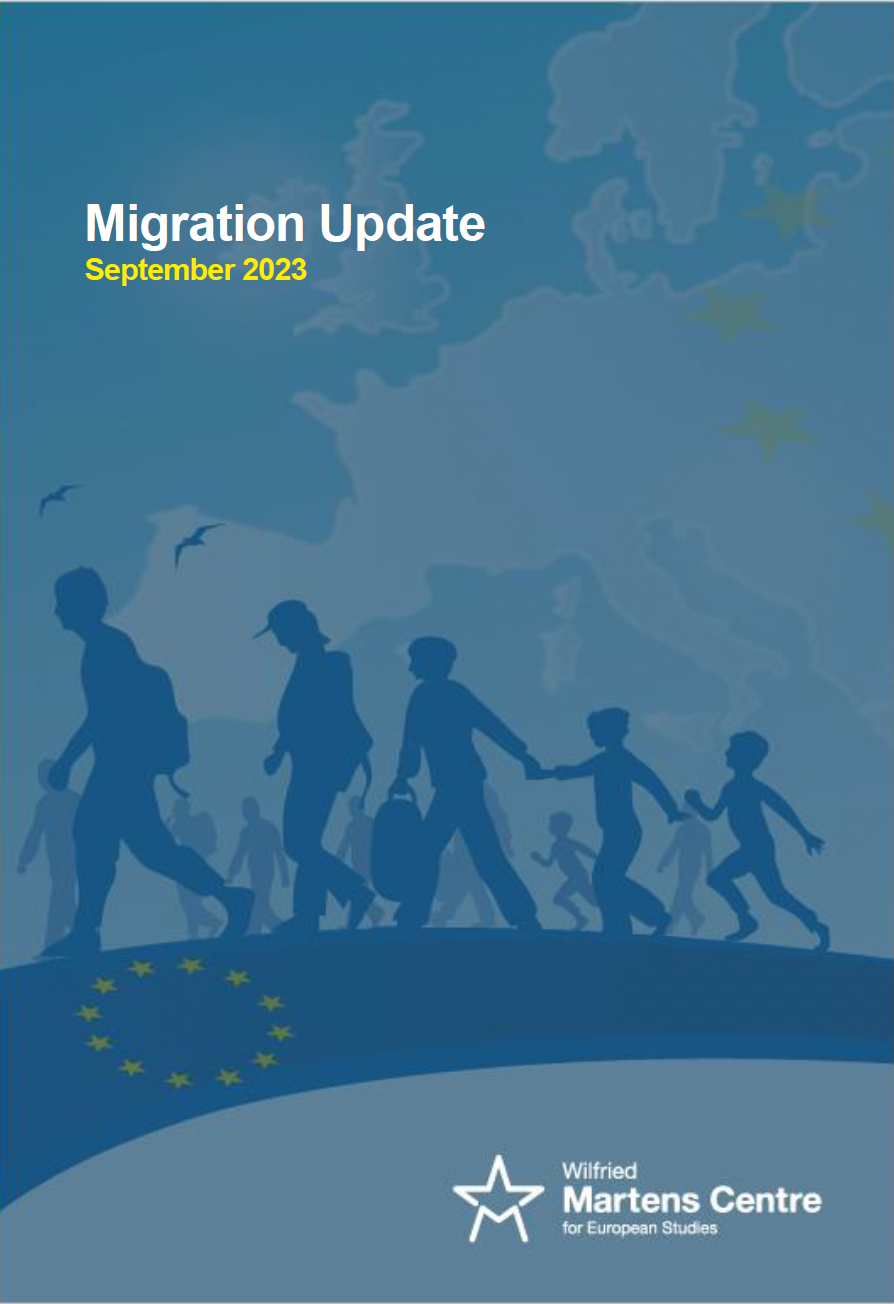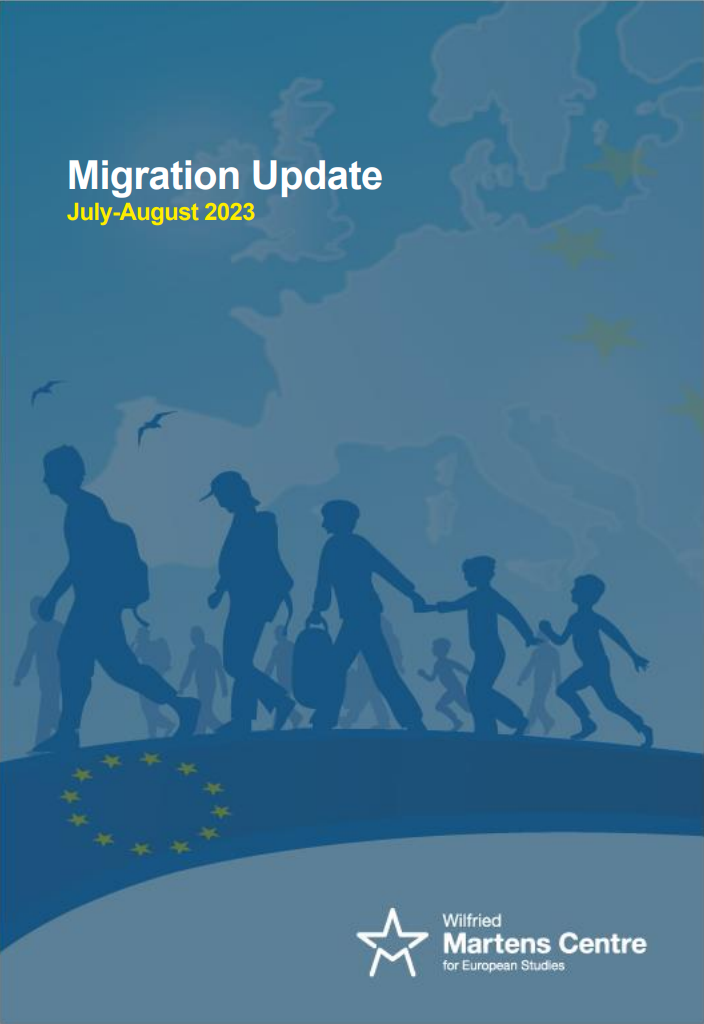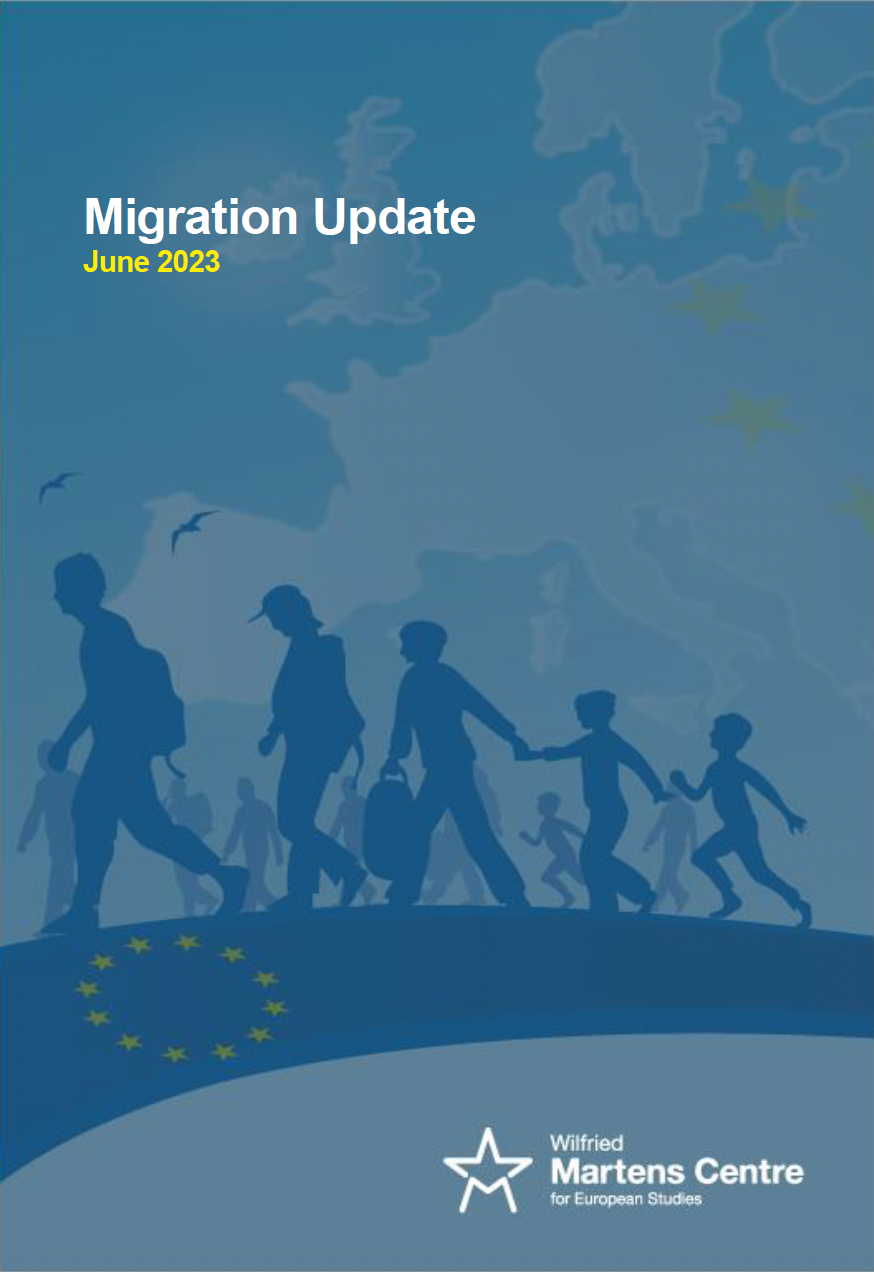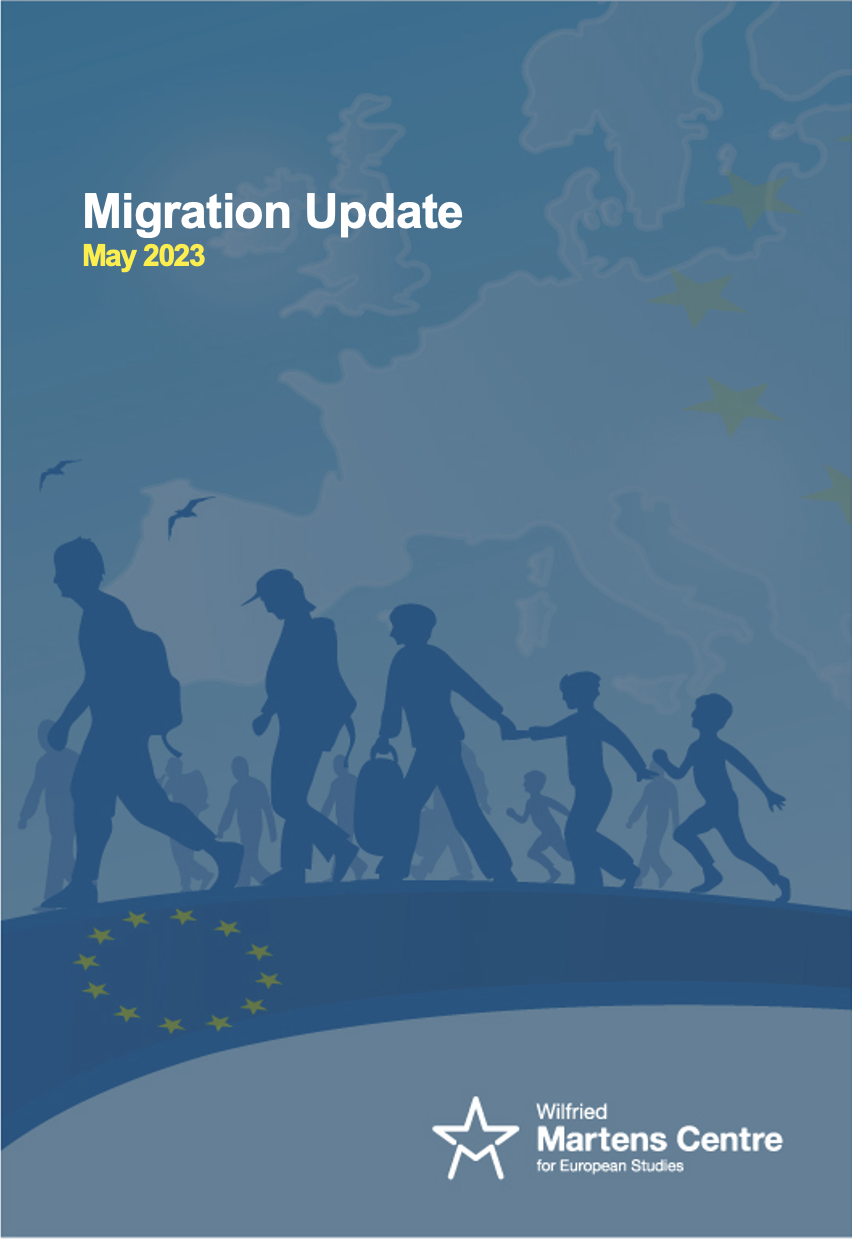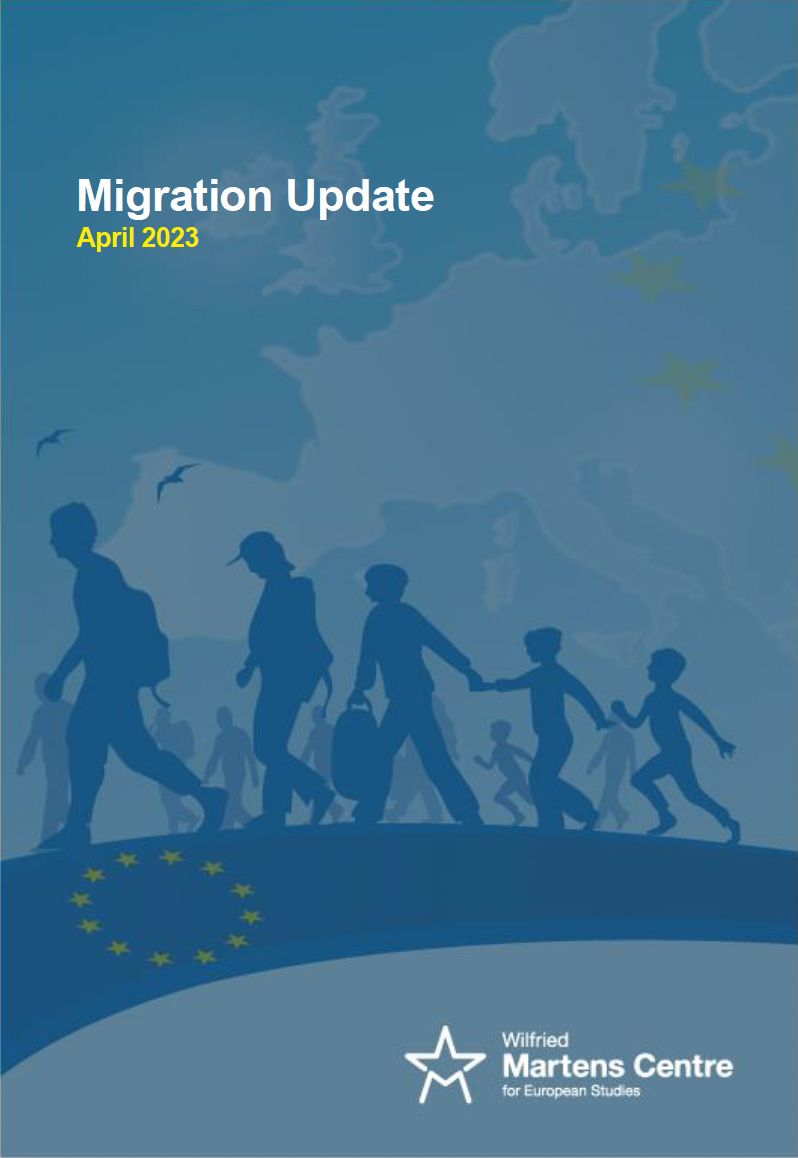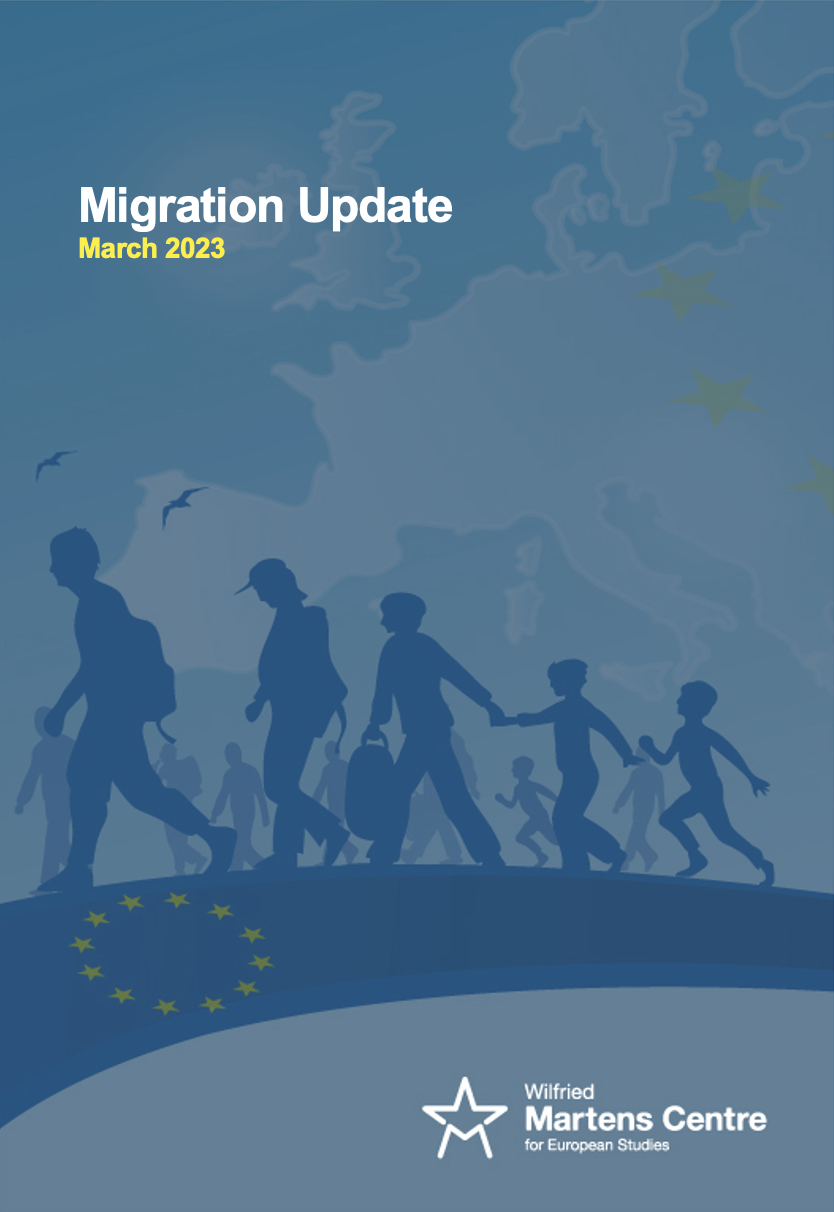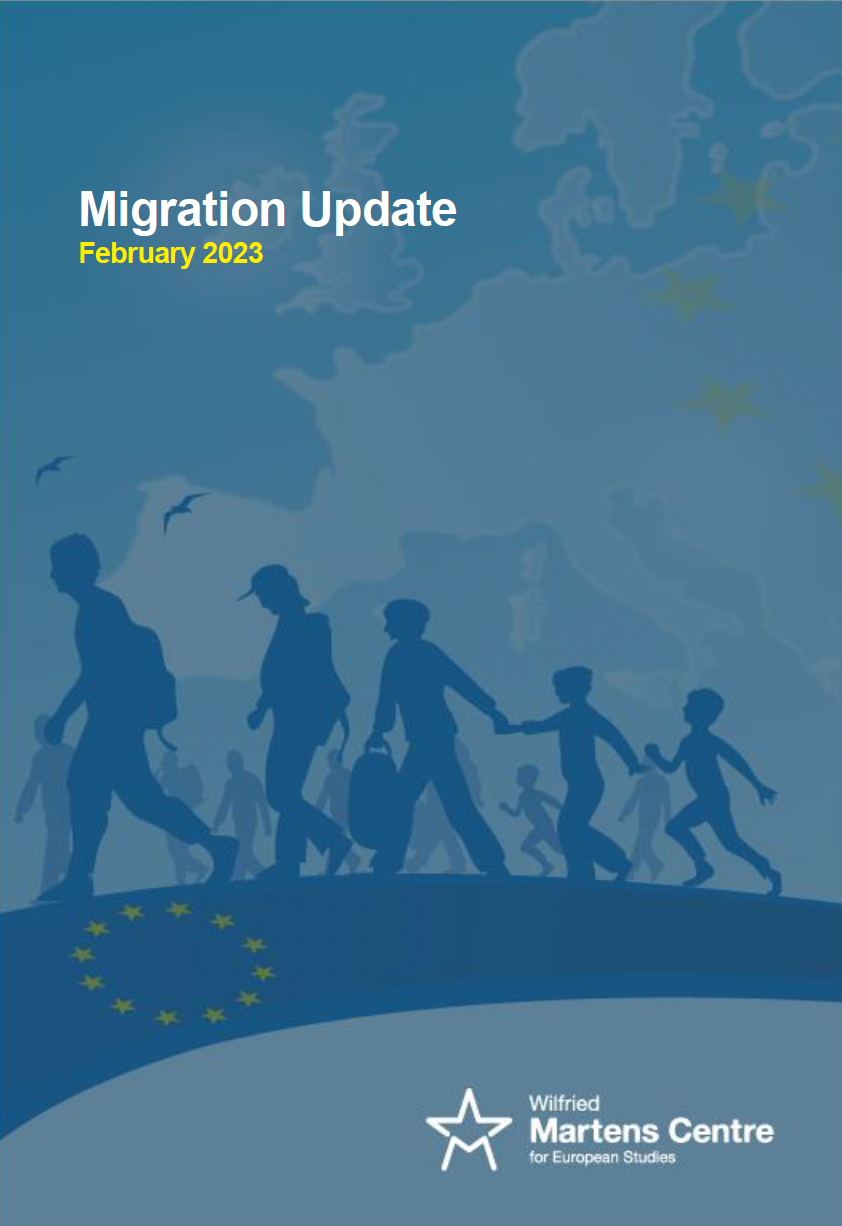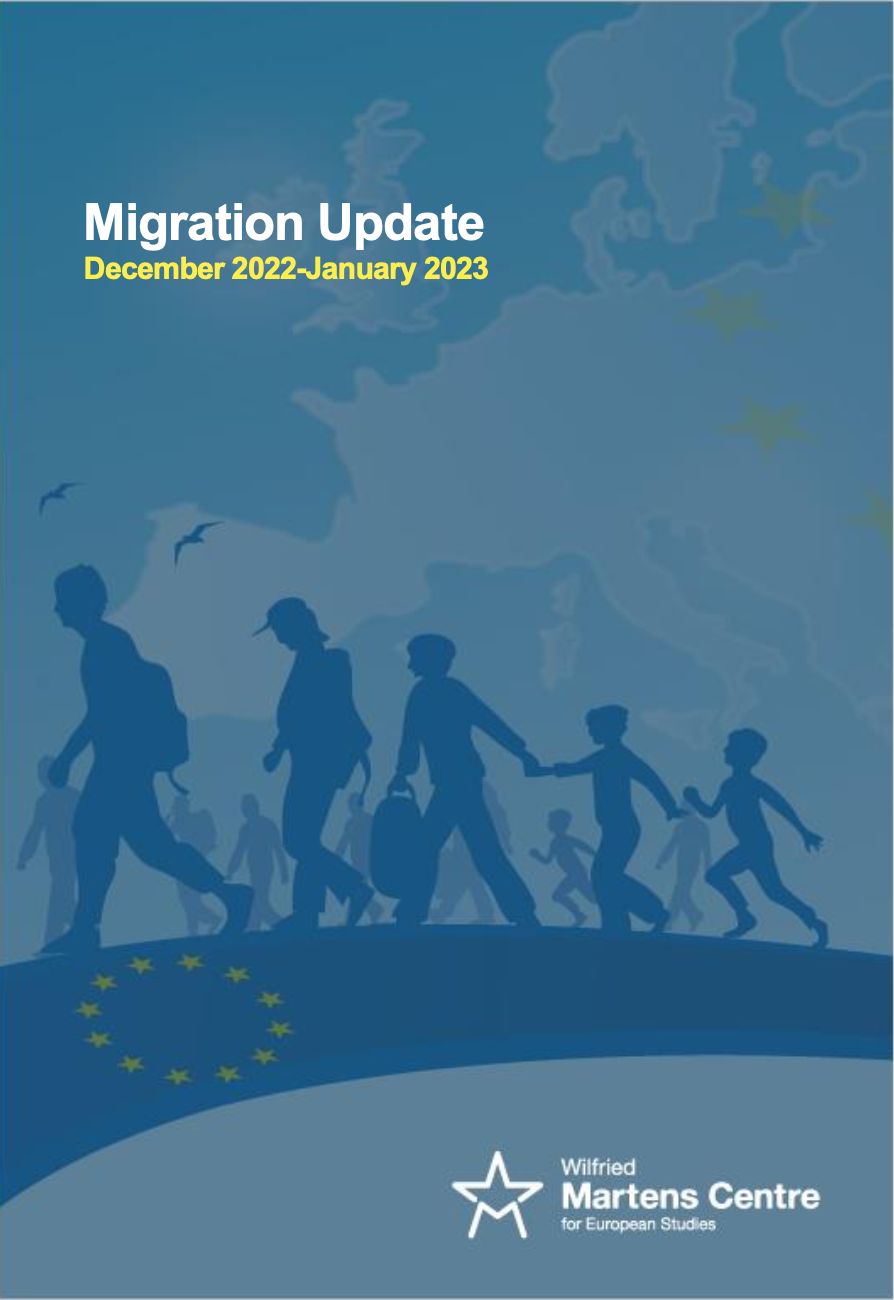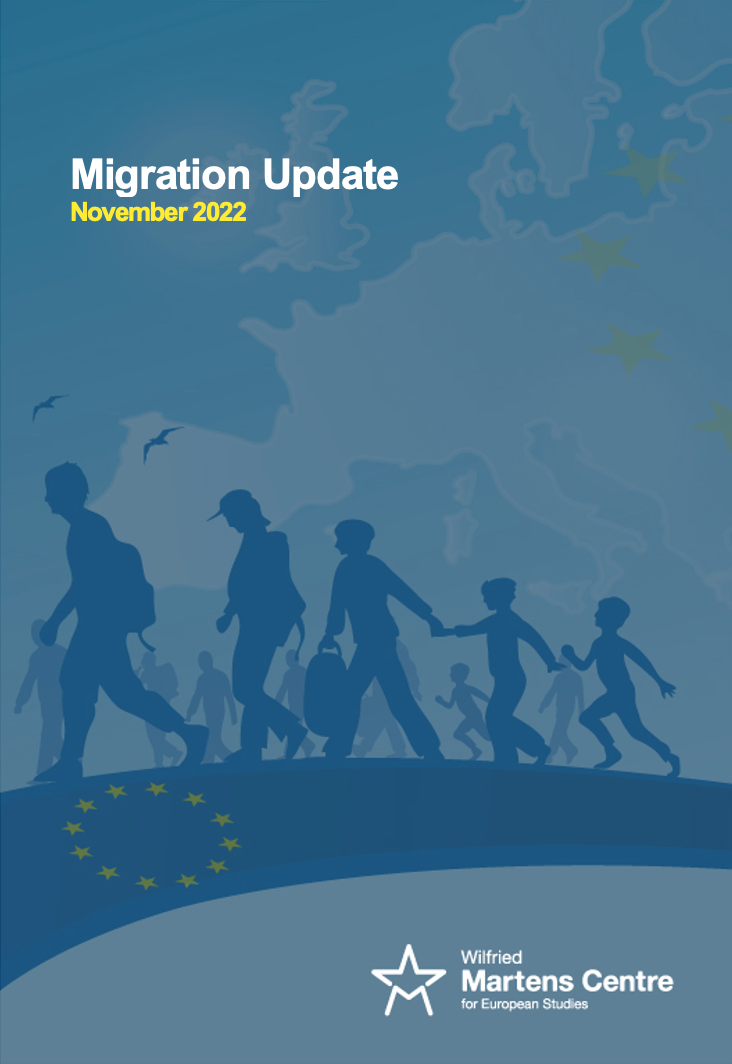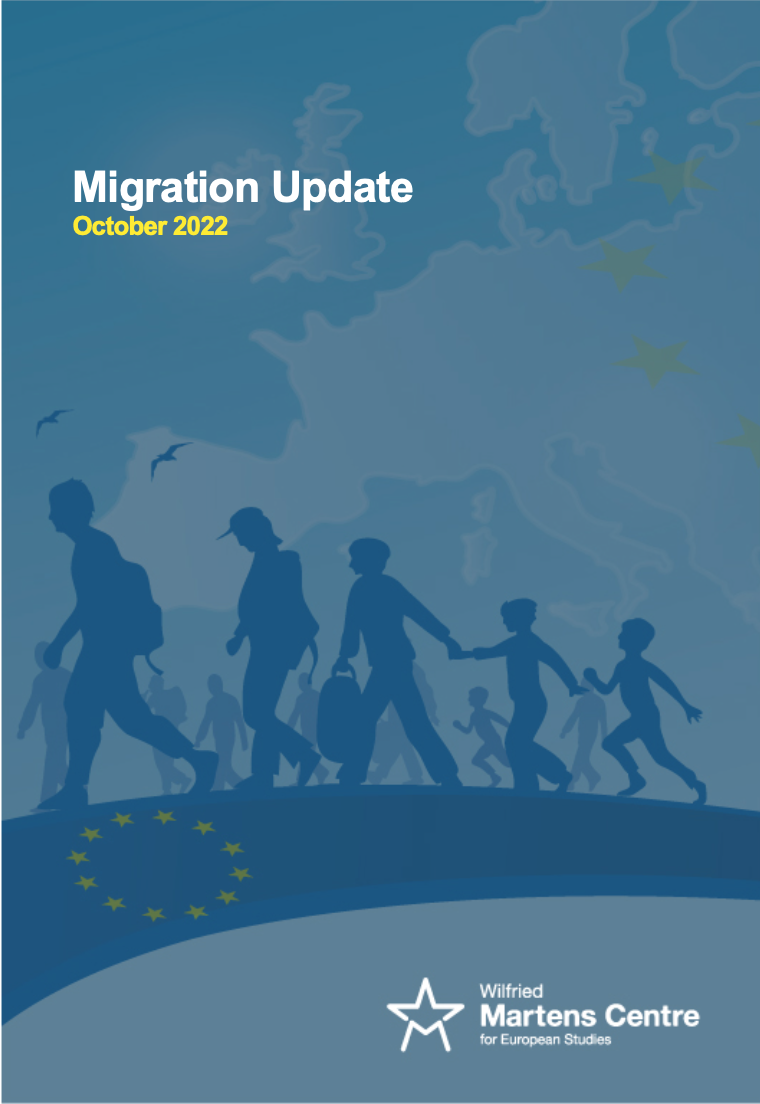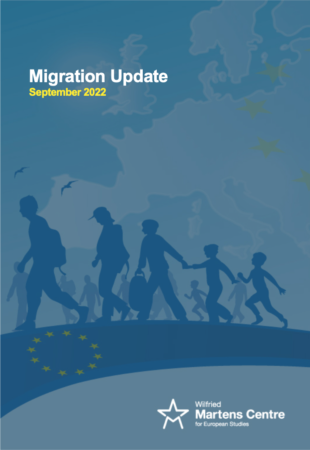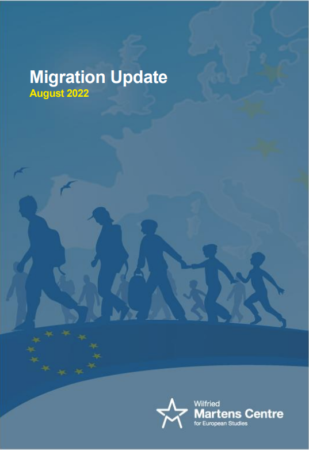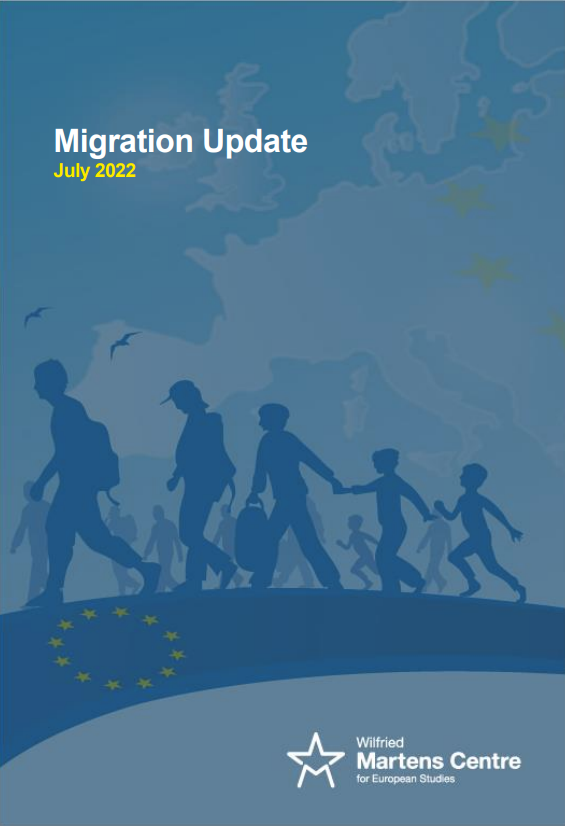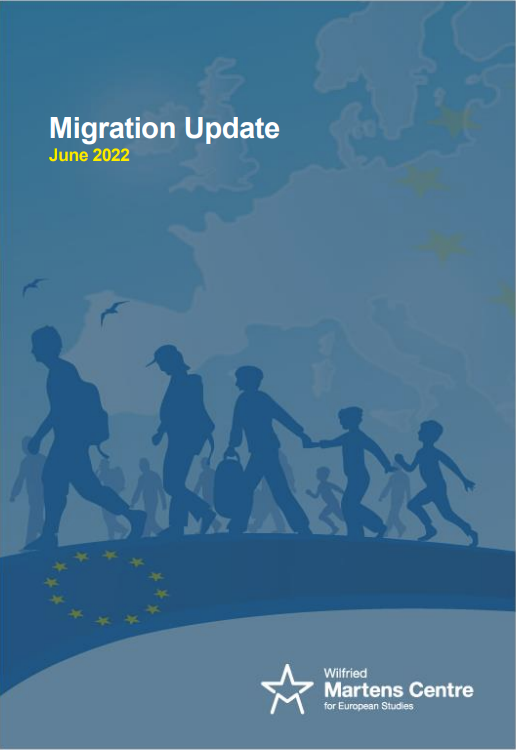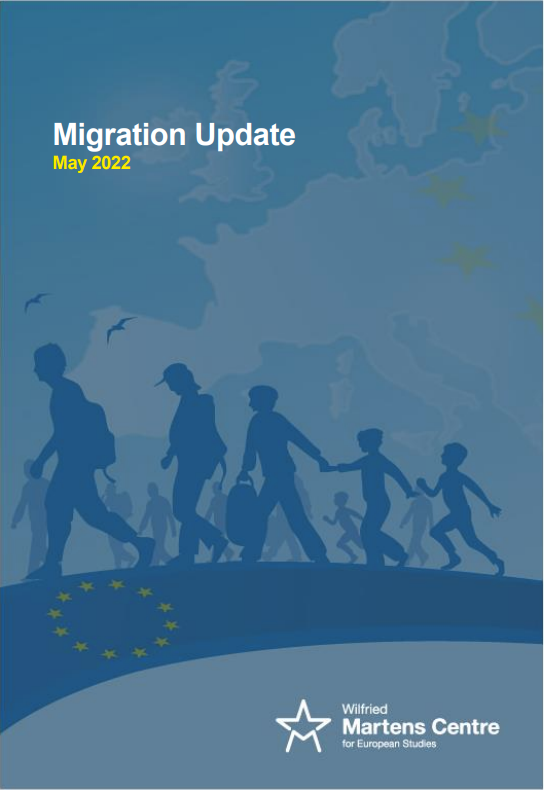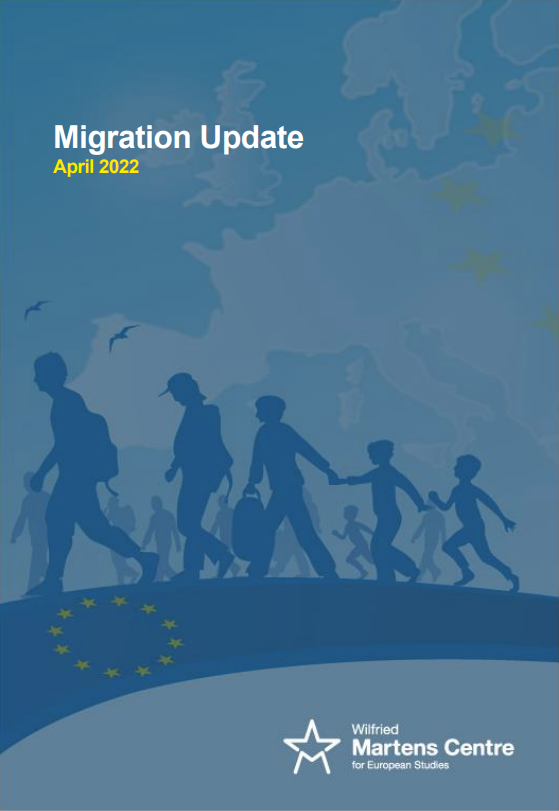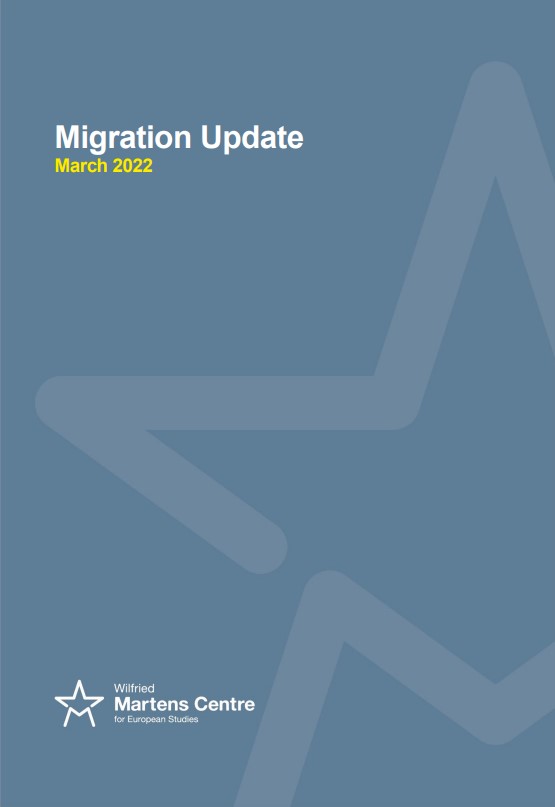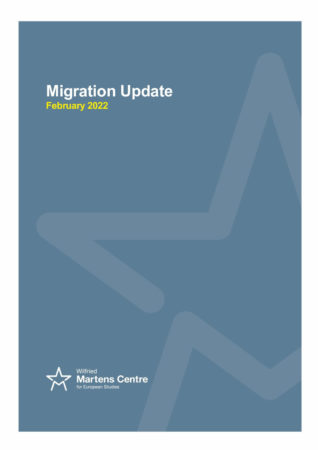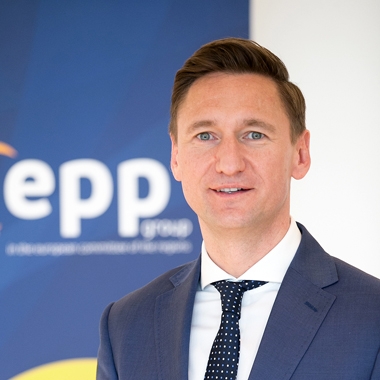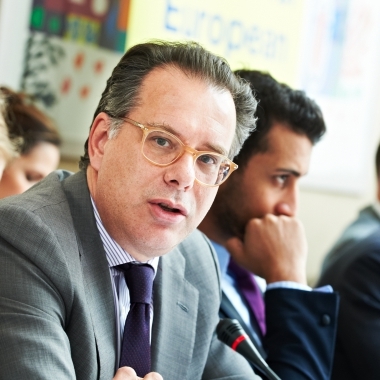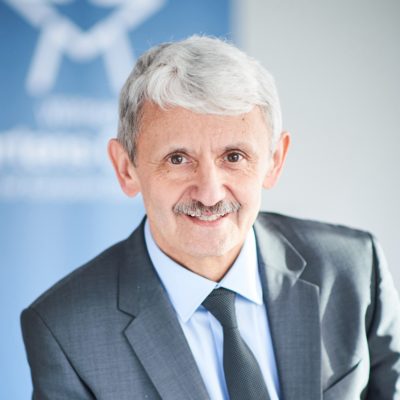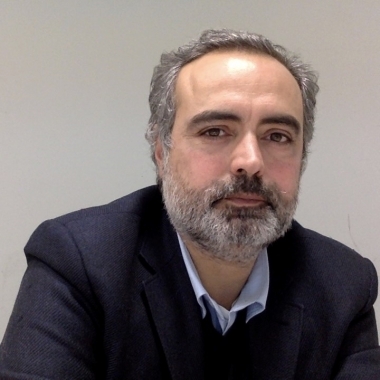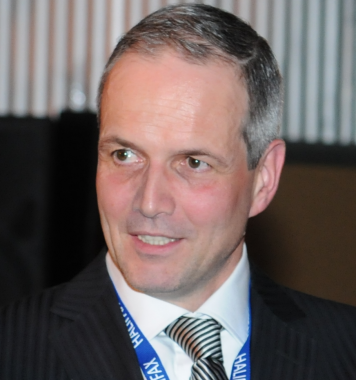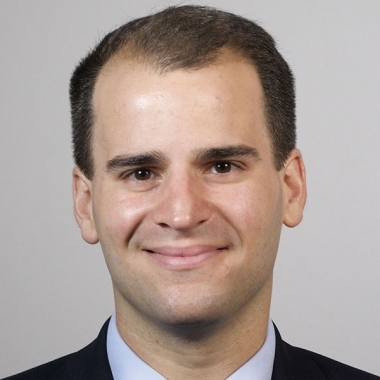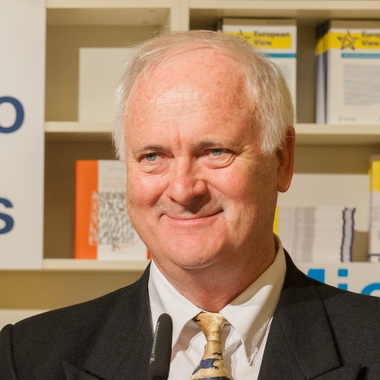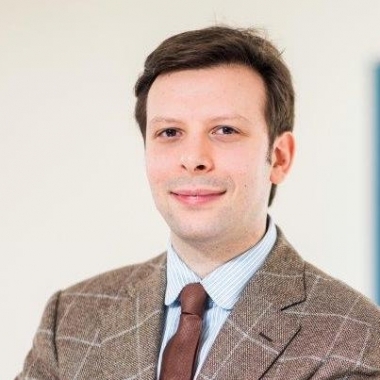-

Migration Update June 2025
Migration Update
30 Jun 2025
-

Migration Update April-May 2025
Migration Update
28 May 2025
-
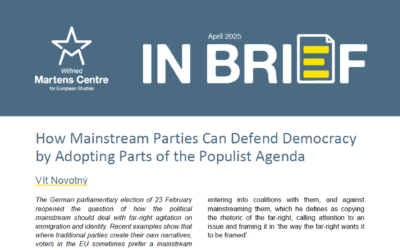
How Mainstream Parties Can Defend Democracy by Adopting Parts of the Populist Agenda
IN BRIEF
08 Apr 2025
-
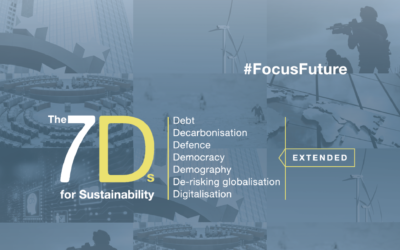
The 7Ds Extended
The 7Ds
31 Dec 2024
-
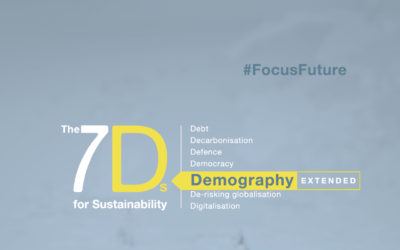
The 7Ds – Demography Extended
The 7Ds
30 Dec 2024
-
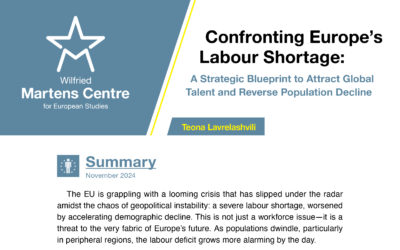
Confronting Europe’s Labour Shortage: A Strategic Blueprint to Attract Global Talent and Reverse Population Decline
Policy Briefs
12 Nov 2024
-

Migration Update October 2024
Migration Update
31 Oct 2024
-

Migration Update September 2024
Migration Update
30 Sep 2024
-

Migration Update July-August 2024
Migration Update
31 Aug 2024
-
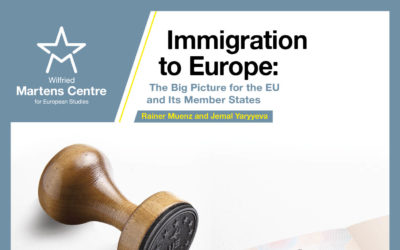
Immigration to Europe: The Big Picture for the EU and Its Member States
Research Papers
30 Jul 2024
-
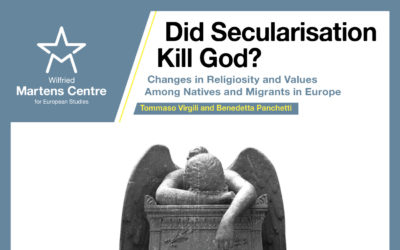
Did Secularisation Kill God? Changes in Religiosity and Values Among Natives and Migrants in Europe
Research Papers
27 Mar 2024
-

Migration Update February 2024
Migration Update
29 Feb 2024
-

Challenges of Belarusian Migration in the EU
Collaborative
30 Dec 2023
-

Migration Update October 2023
Migration Update
31 Oct 2023
-
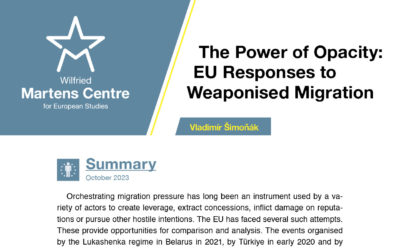
The Power of Opacity: EU Responses to Weaponised Migration
Policy Briefs
25 Oct 2023
-

Migration Update September 2023
Migration Update
30 Sep 2023
-

Migration Update July-August 2023
Migration Update
31 Aug 2023
-

Migration Update June 2023
Migration Update
30 Jun 2023
-

Migration Update May 2023
Migration Update
31 May 2023
-

Migration Update April 2023
Migration Update
30 Apr 2023
-
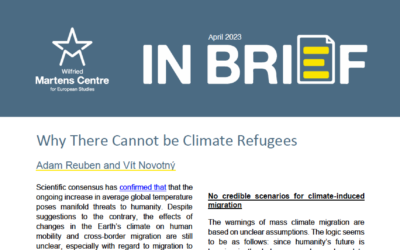
Why There Cannot be Climate Refugees
IN BRIEF
28 Apr 2023
-

Migration Update March 2023
Migration Update
31 Mar 2023
-
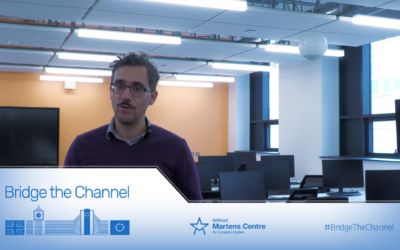
Bridge The Channel – The Windsor Framework and the UK’s Illegal Migration Bill
Bridge the Channel - Multimedia
16 Mar 2023
-

Migration Update February 2023
Migration Update
28 Feb 2023
-
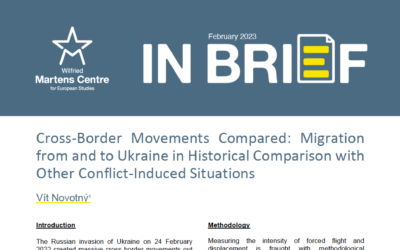
Cross-Border Movements Compared: Migration from and to Ukraine in Historical Comparison with Other Conflict-Induced Situations
Ukraine
24 Feb 2023
-

Migration Update December 2022-January 2023
Migration Update
31 Jan 2023
-

Migration Update November 2022
Migration Update
30 Nov 2022
-

Migration Update October 2022
Migration Update
31 Oct 2022
-

Migration Update September 2022
Migration Update
30 Sep 2022
-

Migration Update August 2022
Migration Update
31 Aug 2022
-

Migration Update July 2022
Migration Update
29 Jul 2022
-

Migration Update June 2022
Migration Update
30 Jun 2022
-
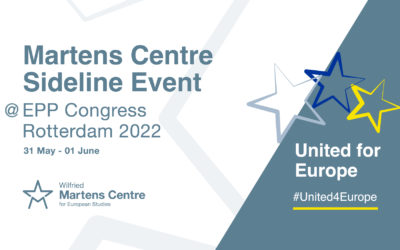
EPP Congress – Day 2 Streaming
Live-streams - Multimedia
01 Jun 2022
-

Migration Update May 2022
Migration Update
31 May 2022
-

Migration Update April 2022
Migration Update
30 Apr 2022
-
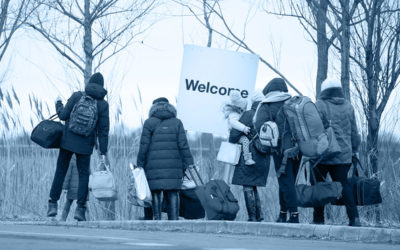
Ukrainian Refugees and the EU’s Absorption Capacity
Blog - Ukraine
06 Apr 2022
-

Migration Update March 2022
Migration Update
31 Mar 2022
-

Migration Update February 2022
Migration Update
28 Feb 2022
-
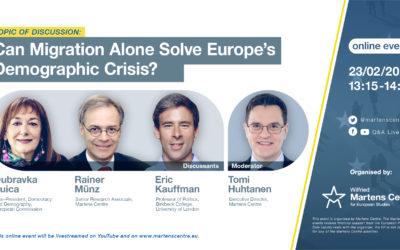
Can Migration Alone Solve Europe’s Demographic Crisis?
Live-streams - Multimedia
23 Feb 2022
-
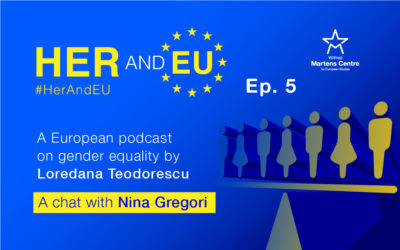
Women and Asylum in Europe
Her and EU
11 Feb 2022
-

The Week in 7 Questions with Daniel Fried
Multimedia - Other videos
19 Nov 2021
-
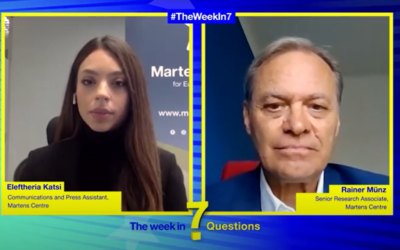
The Week in 7 Questions with Rainer Münz
Multimedia - Other videos
15 Oct 2021
-
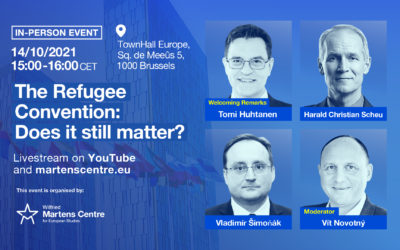
The Refugee Convention: Does it still matter?
Live-streams - Multimedia
14 Oct 2021
-
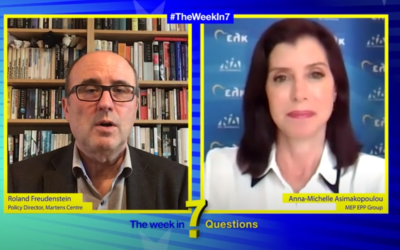
The Week in 7 Questions with Anna-Michelle Asimakopoulou
Multimedia - Other videos
28 May 2021
-
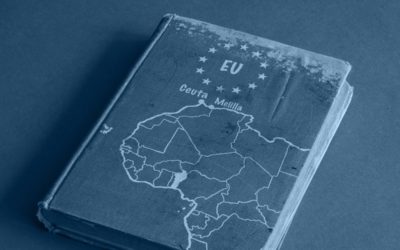
A Tale of Two Cities in Africa
Blog
27 May 2021
-

EU External Funding on Migration and Democracy: Synergy or Friction?
Live-streams - Multimedia
26 Jan 2021
-

Making Development Aid Dependent on Cooperation on Migration
Blog
26 Jan 2021
-
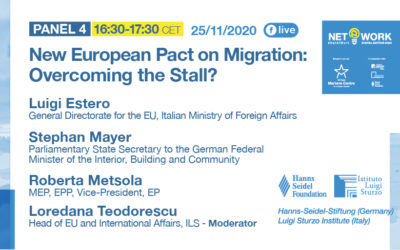
NET@WORK Day 1 – Panel 4
Live-streams - Multimedia
25 Nov 2020
-

What are the Lessons From the Terrorist Attacks in France and Austria?
Blog
17 Nov 2020
-

Online Event ‘The New Pact on Migration: Will the Member States Sign Up?’
Live-streams - Multimedia
14 Oct 2020
-
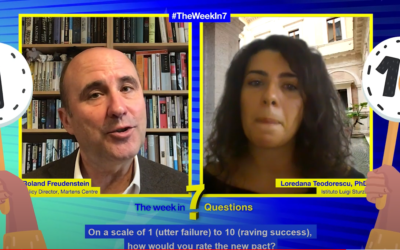
The Week in 7 Questions with Loredana Teodorescu
Multimedia - Other videos
02 Oct 2020
-

Whose ‘Identity’? Multiculturalism vs. Integration in Europe
Blog
06 Jul 2020
-

Lessons From Migrant Integration Into European Societies
Blog
30 Jun 2020
-

Surveillance Aircraft and the Borders of Schengen
Blog
23 Jun 2020
-

Western Pomeranian Experiences with Migration and Emigration: The Need for Local Solutions
Blog
15 Jun 2020
-

Should EU countries regularise undocumented migrants due to the COVID-19 pandemic?
Other News
04 Jun 2020
-

Migration: A European Question in Need of Urgent Answers
Blog
04 Jun 2020
-

How does the Corona crisis affect the conditions for migrant workers in the EU?
Other News
29 May 2020
-

New Perspectives on Migration Policies
Blog
25 May 2020
-
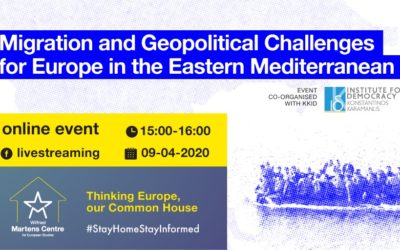
Online Event ‘Migration and Geopolitical Challenges for Europe in the Eastern Mediterranean’
Live-streams - Multimedia
09 Apr 2020
-
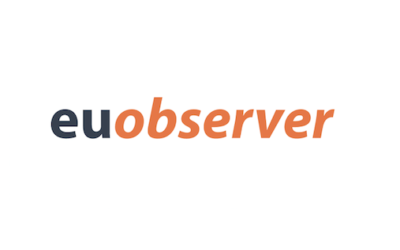
An EU migration policy revolution from the courts?
Articles and Op-Eds - In the Media
04 Mar 2020
-

Boycotting the Migration Compact: a loss of credibility for the EU
Blog
10 Dec 2018
-

Externalising Migration Controls? Think Big, Start Small
Blog
29 Jun 2018
-

Where is the European frontier? The Balkan migration crisis
Blog
18 Dec 2017
-

Regional cooperation in Central and Eastern Europe and its implications for the EU
Blog
14 Dec 2017
-

The end and the beginning: the EU, Africa and the need for a new migration regime
Blog
30 Oct 2017
-

Ambition versus reality: partnering with our neighbours on migration
Blog
04 Jul 2017
-

Media discourse on the refugee crisis: on what have the Greek, German and British press focused?
Blog
07 Nov 2016
-

Visegrad at 25: time to show European leadership
Blog
08 Jun 2016
-

Europe’s twenty-first century challenge: climate change, migration and security
Blog
03 May 2016
-

A Clash of Cultures ? Refugees and the new East-West divide in the EU
Blog
17 Dec 2015
-

Broken systems: the 2014 humanitarian crisis in the US and policy insights for Europe
Blog
25 Nov 2015
-

The challenges that the EU must meet today
Blog
26 Oct 2015
-

Who do we want to be in 20 years? European identity and the refugee crisis
Blog
01 Oct 2015
-

More Europe, Less Egoism: European civil society to the rescue in the migrant crisis
Blog
04 Sep 2015
-

Greece and the refugee crisis
Blog
14 Jul 2015
-

‘Theory checking’: is unconditional free movement in the EU beneficial?
Blog
05 Jun 2014
-

‘Our European Way of Life’ as the Guiding Principle: Shifts in the Understanding of Immigrant Integration at the EU Level
IN FOCUS
16 Nov 2022
-

The Transatlantic Perspective on Migration: Attuning Migration Policy to National Politics
IN FOCUS
25 Jan 2022
-
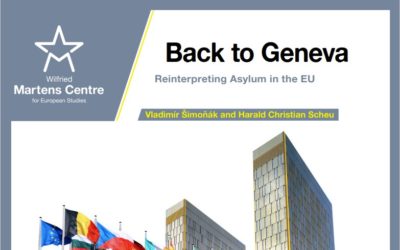
Back to Geneva: Reinterpreting Asylum in the EU
Research Papers
11 Oct 2021
-

A Brussels-Based Dictatorship or a Paradise of Subsidiarity? National Prerogatives and EU Migration Policy
Future of Europe
08 Sep 2021
-
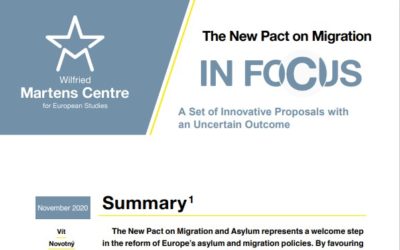
The New Pact on Migration: A Set of Innovative Proposals with an Uncertain Outcome
IN FOCUS
05 Nov 2020
-

COVID-19 and the Old-New Politics of Irregular Migration from Libya
IN BRIEF
02 Jul 2020
-
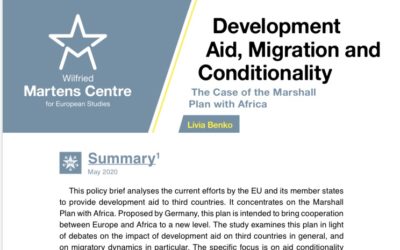
Development Aid, Migration and Conditionality – The Case of the Marshall Plan with Africa
Policy Briefs
05 May 2020
-

The EU and the Prospect of a New Migration Wave from Turkey
IN BRIEF
10 Jan 2020
-

Rescue Operations in the Mediterranean: Towards a Reliable EU Policy
Research Papers
13 Nov 2019
-

The Refugee Crisis: Towards better cooperation between Europe’s national governments
IN FOCUS
16 Oct 2015
-
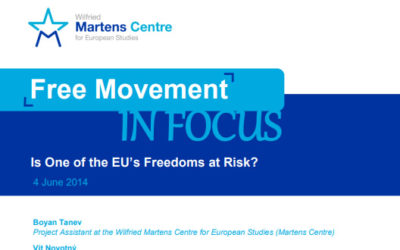
Free Movement: Is One of the EU’s Freedoms at Risk?
IN FOCUS
05 Jun 2014
-

Jobs without Frontiers: the Potential of the Single European Labour Market
Collaborative
06 May 2013
-

Migrating towards Participation: Immigrants and their Descendants in the Political Process
Policy Briefs
01 Nov 2012
-

Addressing Irregular Migration in the Mediterranean
Research Papers
01 Jul 2012


